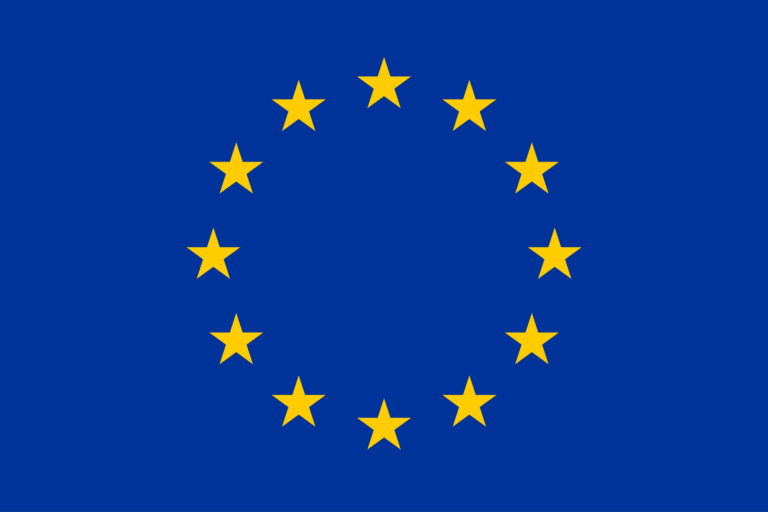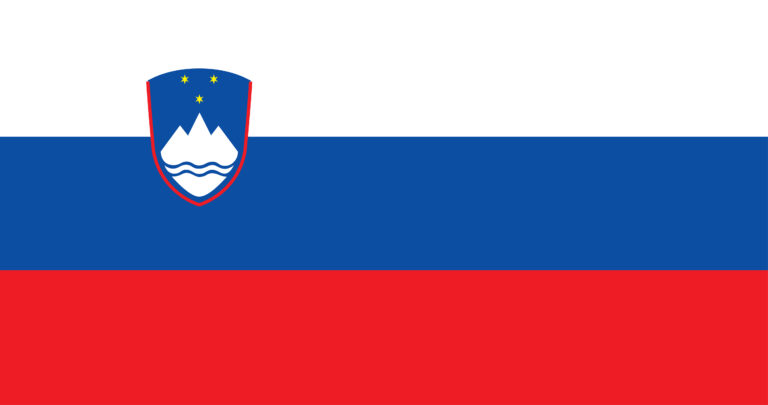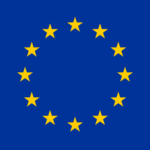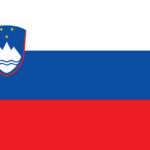Introduction
Physiotherapy is a vital healthcare profession focused on improving patients’ physical mobility, reducing pain, and promoting overall well-being. As a physiotherapist, one works closely with individuals recovering from injury, illness, or surgery, tailoring treatment plans to restore functional movement. The importance of quality Physiotherapy degree Netherlands cannot be overstated, as it directly impacts the level of care provided to patients. In a competitive and evolving profession, obtaining a comprehensive and specialized education is crucial for success.
The Netherlands has become a prominent destination for studying physiotherapy due to its high standards of education and training. The country offers a robust system of practical and academic learning that prepares students for the diverse challenges of the field. With internationally recognized universities, reasonable tuition fees, and opportunities for clinical internships, the Netherlands presents an attractive option for students pursuing a physiotherapy degree.
For prospective physiotherapists, pursuing a degree in the Netherlands offers several key advantages. The cost of education is relatively affordable compared to many other European countries, making it an ideal choice for international students. Physiotherapy programs in the Netherlands also emphasize practical experience, with students required to complete internships at hospitals, clinics, and rehabilitation centers.
Overview of Physiotherapy Programs in the Netherlands
Physiotherapy programs in the Netherlands typically span three to four years, with a strong emphasis on both theoretical knowledge and practical training. The curriculum is designed to equip students with the necessary skills to assess, diagnose, and treat patients effectively. The programs are structured to cover foundational subjects such as human anatomy, physiology, biomechanics, and musculoskeletal disorders, alongside specialized areas like neurological rehabilitation and pediatric physiotherapy.
The Bachelor of Physiotherapy is the most common undergraduate qualification offered in the Netherlands, providing students with a comprehensive education that qualifies them for professional practice. During the first phase of the program, students focus on gaining essential medical and scientific knowledge. In the later stages, the emphasis shifts toward practical application, with students participating in clinical internships where they work with patients under supervision.
Leading physiotherapy institutions
Some of the leading institutions offering physiotherapy degrees in the Netherlands include:
- Amsterdam University of Applied Sciences offers a three-year Bachelor of Physiotherapy program. This program is particularly noted for its focus on practical learning and international perspectives, attracting students from around the world. The university’s collaboration with healthcare institutions provides students with ample opportunities for internships and clinical placements.
- Hanze University of Applied Sciences offers a four-year Bachelor of Physiotherapy degree, which also integrates internships as a key component of the curriculum. Known for its strong emphasis on student support and personal development, Hanze provides an environment conducive to professional growth and specialization.
- THIM University of Applied Sciences offers a Bachelor of Science in Physiotherapy for international students. This program, lasting four years, is designed specifically for students who aim to work globally. The university places a strong focus on integrating research with clinical practice, ensuring that graduates are equipped to innovate within the physiotherapy field.
These institutions provide a range of programs, with varying structures and lengths, to suit different learning needs and career ambitions. Each program integrates a blend of theoretical coursework, hands-on internships, and research opportunities, ensuring that students graduate with the practical and academic qualifications required to succeed in the physiotherapy profession.
Cost of Studying Physiotherapy in the Netherlands
The cost of studying physiotherapy in the Netherlands varies depending on the institution and the student’s residency status. For international students, the cost is generally higher than for Dutch students, though the fees in the Netherlands are still relatively low compared to other European countries, such as the UK or Scandinavia.
Beyond tuition, international students should consider other financial factors when planning to study in the Netherlands. Living expenses can vary based on the city, lifestyle, and personal choices. Cities like Amsterdam and Utrecht may have higher living costs, particularly for accommodation, while smaller cities tend to offer more affordable living options.

Accommodation costs are a significant part of the living expenses. Textbooks and materials also contribute to a student’s expenses, with costs varying by program and course requirements. However, many universities provide online resources or have partnerships with bookstores that offer discounted prices for students.
For international students, there are some scholarships and financial aid opportunities available, though they are generally limited and competitive. Some Dutch universities offer partial scholarships or grants for non-EU students, aimed at helping with tuition fees or living expenses. Additionally, students may explore external scholarships, such as those offered by the Dutch government, international organizations, or the Dutch Ministry of Education.
While the cost of studying physiotherapy in the Netherlands may seem high, the quality of education, opportunities for practical experience, and the relatively affordable living costs compared to other European countries make it a worthwhile investment.
Admission Requirements for Physiotherapy Degrees in the Netherlands
The admission requirements for physiotherapy degrees in the Netherlands are relatively straightforward but can vary slightly depending on the institution. Generally, prospective students must meet specific academic criteria, demonstrate language proficiency, and, in some cases, undergo an entrance exam or interview.
Academic Qualifications
To be eligible for admission to a Bachelor of Physiotherapy program in the Netherlands, students typically need to have completed secondary education with a strong background in science-related subjects. Specifically, applicants are required to have completed courses in biology and chemistry, as these subjects form the foundation for understanding human anatomy, physiology, and other critical areas of physiotherapy. While a high school diploma is the minimum requirement, some universities may ask for specific grades in these subjects to ensure that applicants are adequately prepared for the academic rigor of the program.
For international students, the exact academic qualifications required may differ depending on their country of origin. Universities typically assess foreign qualifications to ensure they are equivalent to the Dutch pre-university education (VWO). If an applicant’s qualifications do not meet the standards, they may be asked to complete additional preparatory courses or exams before being admitted.
Language Requirements
Since many physiotherapy programs in the Netherlands are taught in English, international students are generally required to demonstrate proficiency in the English language. This can be done through standardized tests like the IELTS or TOEFL, where most universities require a minimum score of around 6.0 to 6.5 on the IELTS or 80 to 90 on the TOEFL. Some universities may also accept other certifications or demonstrate proficiency through previous studies conducted in English.
For programs taught in Dutch, proficiency in the Dutch language is required. This includes understanding and speaking Dutch fluently, as most clinical interactions will take place in Dutch healthcare settings. Applicants who are non-native Dutch speakers may need to pass a language proficiency test, such as the NT2 (Dutch as a Second Language) exam. However, programs taught in English are more common for international students, particularly those aiming for a global career in physiotherapy.
Entrance Exams and Interviews
While many physiotherapy programs in the Netherlands do not require an entrance exam, some universities may use additional assessments to evaluate applicants. For instance, universities like THIM University of Applied Sciences may require an entrance exam that assesses the applicant’s scientific knowledge, including topics related to biology and anatomy. Additionally, some universities may conduct interviews as part of their selection process to assess an applicant’s motivation, communication skills, and suitability for the program.
These entrance exams and interviews are more common for international students or those applying to highly competitive programs. The purpose is to ensure that applicants have the necessary academic background and personal attributes to succeed in the physiotherapy profession.
Program Duration
The standard duration for a Bachelor of Physiotherapy program in the Netherlands is typically three to four years, depending on the institution and the specific program structure. In the first two years, students focus on foundational subjects like anatomy, physiology, and biomechanics, while the final year emphasizes clinical practice and specialized training through internships. The duration allows students to gain essential theoretical knowledge alongside hands-on experience in healthcare settings, preparing them for professional practice in physiotherapy.
Overall, the admission process for physiotherapy programs in the Netherlands is designed to ensure that students are adequately prepared for the academic and clinical demands of the profession. Students from various educational backgrounds, both from within the Netherlands and abroad, can access these programs, provided they meet the academic and language requirements and, where applicable, pass entrance exams or interviews.
Curriculum and Focus Areas of Physiotherapy Programs
Physiotherapy programs in the Netherlands are designed to provide students with a comprehensive understanding of both the theoretical and practical aspects of physical rehabilitation. The curriculum covers a wide range of subjects to ensure that students are equipped with the knowledge and skills required to assess, diagnose, and treat patients effectively in various healthcare settings.
Core Subjects
The first years of a Bachelor of Physiotherapy program are focused on foundational subjects that are critical to understanding human movement and health. Anatomy and physiology are core components, as these subjects provide the basic knowledge of the human body’s structure and function. Students learn about the musculoskeletal, nervous, and cardiovascular systems, gaining a deep understanding of how these systems interact and how dysfunctions in these areas can affect overall health.
Biomechanics, which studies the mechanical principles of movement, is another key subject. It helps students understand how forces and movements impact the body, crucial for developing effective treatment plans for patients. Musculoskeletal health is also emphasized, covering conditions such as joint pain, muscle strains, and ligament injuries. This foundational knowledge allows students to assess physical conditions, identify movement impairments, and apply appropriate therapeutic interventions.
As students progress, the curriculum shifts toward more clinical and specialized topics. In later years, subjects such as neurology, pediatric care, and sports physiotherapy are introduced. Students learn how to assess and treat conditions like stroke, cerebral palsy, and sports injuries, gaining insights into specific patient populations and their unique rehabilitation needs.
Focus on Innovative Therapies and Research
One of the distinguishing features of physiotherapy education in the Netherlands is the emphasis on innovative therapies and evidence-based practice. Dutch physiotherapy programs integrate the latest research into their curricula, ensuring that students are exposed to new techniques and cutting-edge treatments in the field. This focus on innovation prepares graduates to adapt to rapidly evolving healthcare needs and apply advanced therapeutic modalities in their practice.
Many universities in the Netherlands encourage students to participate in research projects as part of their education. These projects allow students to explore emerging topics in physiotherapy, such as the use of technology in rehabilitation, the role of physiotherapy in managing chronic diseases, and the development of new therapeutic techniques.
Specialized Fields of Physiotherapy
The Dutch physiotherapy curriculum provides students with the foundational knowledge needed to pursue a range of specializations after graduation. Throughout their studies, students are exposed to various areas of physiotherapy, such as orthopedic, neurological, and pediatric rehabilitation.
Orthopedic physiotherapy focuses on the treatment of musculoskeletal disorders, including joint, muscle, and ligament injuries. Students in this specialization gain an in-depth understanding of musculoskeletal biomechanics and rehabilitation techniques, preparing them to work with patients recovering from surgeries, fractures, or chronic musculoskeletal conditions.
In the field of neurological physiotherapy, students learn how to treat patients with conditions such as stroke, multiple sclerosis, and Parkinson’s disease. The focus is on techniques that help patients regain mobility, strength, and coordination following neurological impairments. Similarly, pediatric physiotherapy involves working with children who have congenital or acquired conditions affecting movement and development, such as cerebral palsy or developmental delay.
As part of their studies, students are also encouraged to undertake physiotherapy internships at hospitals, clinics, or specialized rehabilitation centers. These internships are integral to the curriculum, allowing students to apply their knowledge in real-world settings and develop the hands-on skills needed to excel in their chosen specialization. By the time they graduate, students have a comprehensive understanding of various therapeutic approaches and are well-prepared to enter the workforce or pursue further study in their chosen field.
Hands-On Experience: Internships and Clinical Training
Internships are integrated into the physiotherapy curriculum at multiple stages of the program, typically in the later years when students have mastered the foundational knowledge. These placements are often arranged in a variety of settings, including hospitals, private clinics, rehabilitation centers, and sports medicine facilities. Interns work under the supervision of licensed physiotherapists, who provide guidance and mentorship throughout the process.

For international students, the opportunity to gain clinical experience in the Netherlands is a significant benefit. The country’s healthcare system is known for its high standards, and international students are often welcomed into clinical placements where they can further enhance their learning.
Career Opportunities After Graduating
In hospitals, physiotherapists play a vital role in the recovery of patients who have undergone surgery, experienced trauma, or have chronic health conditions. In private practices, physiotherapists may specialize in areas such as musculoskeletal or neurological rehabilitation, offering personalized care to patients on an outpatient basis. Rehabilitation centers provide another avenue for physiotherapists, where they work with patients recovering from severe injuries, strokes, or surgeries, helping them regain independence and mobility. Additionally, sports medicine clinics offer opportunities for physiotherapists to work with athletes recovering from injuries or seeking injury prevention advice.
According to various reports, physiotherapy is one of the fastest-growing healthcare sectors in the country. As a result, the salary for physiotherapists in the Netherlands is competitive.
Career growth opportunities in the field of physiotherapy are significant. Physiotherapists can pursue further specialization, certifications, or even academic careers. Specializations such as orthopedic, neurological, and pediatric physiotherapy offer opportunities for further professional development, and those who complete advanced education or training can command higher salaries or more senior roles. There are also opportunities to branch out into management or consultancy roles within healthcare organizations.
The Dutch Physiotherapy Association (KNGF) provides continued support and resources for physiotherapists throughout their careers. It offers a variety of programs for continuing education to help practitioners stay up to date with the latest developments in the field. Additionally, KNGF promotes professional development, offering workshops, conferences, and networking events that allow physiotherapists to further their careers and connect with other healthcare professionals. For those interested in career advancement, KNGF also provides guidelines for professional certification, helping physiotherapists increase their credibility and visibility in the field.








